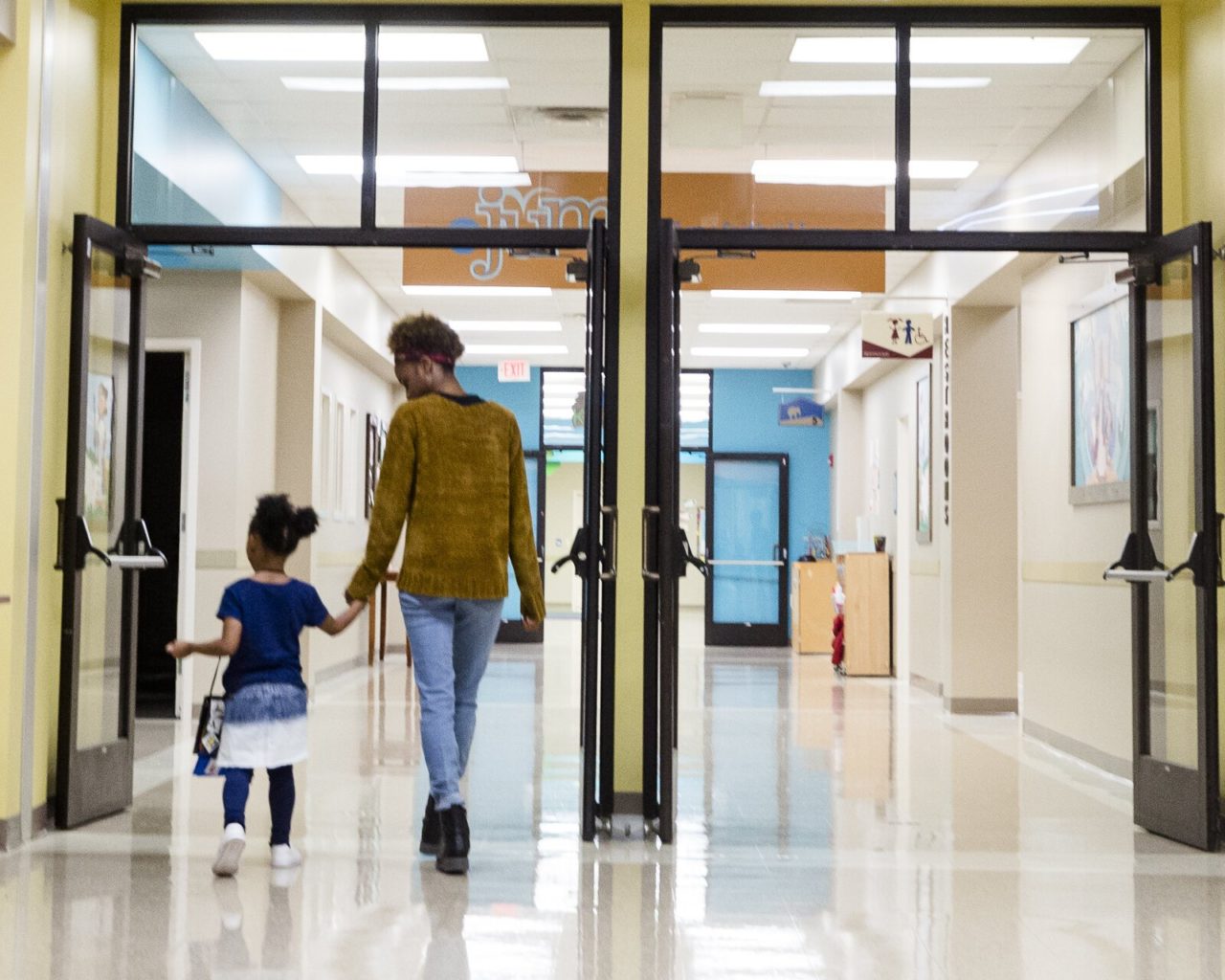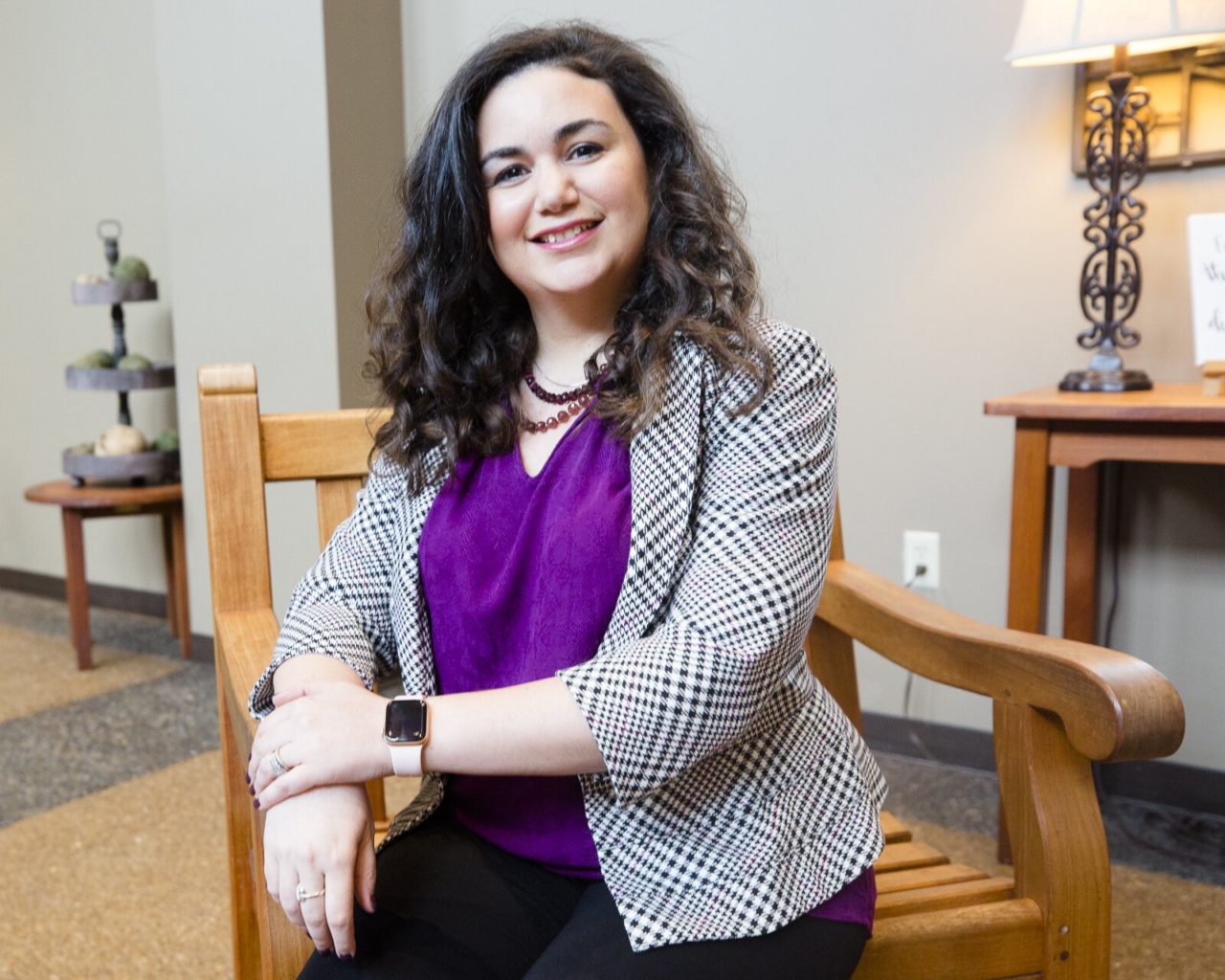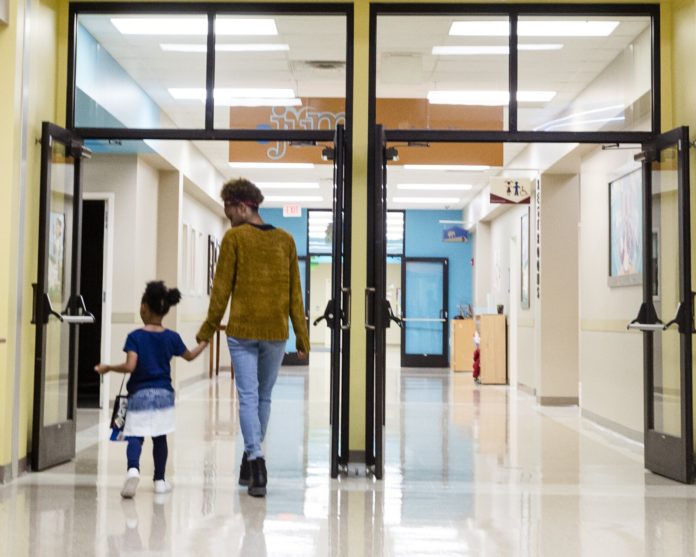By Baris Gursakal, High Ground News
Ashton Hall is the father of five-year-old identical triplets. All three are on the autism spectrum and attend the Harwood Center’s day program for children with developmental delays and disabilities.
“I’m not a very religious or spiritual person, but the people at Harwood are truly angels on earth,” said Hall. “For my triplets and myself, they have changed our world.”
Founded in 1957, the center works to provide a solid and cohesive foundation for academics, social skills, and life skills in early childhood. With a strong early foundation, the children are better equip to lead rich, fulfilling, and independent or partially-independently lives in adulthood.
Harwood’s students have a range of diagnoses including autism, Down syndrome, cerebral palsy, processing disorders, and physical & gross motor disorders.
The center offers education, therapy, and other supports to both children and their families, including in-house counseling services and connects to other providers for needs Harwood can’t meet. It works with children across three locations in Cordova, Orange Mound, and the Raleigh-Frayser area.
Hall said the center has taught him how to listen to his boys but also communicate his own wants and where he’s at mentally and emotionally each day. In addition to his sons’ recent achievements in academics and life skills, better family communication has made for happier kids and a happier home life.
“A year and a half ago, it seemed like a hopeless situation where I was considering, ‘God, my sons are going to be institutionalized,'” said Hall. “… I now have hope that they will have fulfilling and happy lives.”
 Amon Dillan walks holds hands with a Harwood Center student as they walk down the hall of their Cordova location inside Hope Church. January 27, 2020. (ZIggy Mack)
Amon Dillan walks holds hands with a Harwood Center student as they walk down the hall of their Cordova location inside Hope Church. January 27, 2020. (ZIggy Mack)
A PROVEN APPROACH
The center combines specialized early childhood education, applied behavior analysis therapies, and individualized learning plans to optimize the learning environment for each student.
The center records an intricate set of data points that are accessible to parents through an application to track a child’s progress.
“[Those measures] include their parents, teachers, and any therapist that works with that child,” said Latasha Brown, Hardwood’s director of education and outreach.
“We sit down as a team and develop goals for each individual child so each child, each family has their own measurements and goals for what success looks like,” said continued.
“Some of autism as a parent, you end up celebrating things most people take for granted,” said Hall of his measures of success for his sons. “Actual eye contact with your child. Recognition with your child. Comprehension, both of their needs and what you’re trying to convey.”
Applied behavior analysis or ABA is an evidence-based program designed to improving specific academic and social-emotional skills. Skill-building focuses on things like punctuality, social interactions, communication, fine motor skills, hygiene and grooming, and domestic skills.
Early intervention is a key tenant of ABA and its model for lifelong success.
“All the research shows that since [ABA] is the only evidence-based treatment for autism right now, 40 hours of early intervention is key to the child’s overall success for life,” said Lauletta.
Harwood Center combines one-on-one ABA therapy with an environment designed for students’ developmental needs to maximize possible gains in behavioral and cognitive skills.
“In [just shy of] a year at Harwood, my sons’ vocabularies have grown. They have learned empathy. They have learned to acknowledge each other,” said Hall. “It has been life-changing in ways that most people can’t imagine.”
 Harwood Center Executive Director Rachel Lauletta on January 27, 2020. Lauletta hopes the center will soon expand its staff and to a larger, more permanent location. (Ziggy Mack)
Harwood Center Executive Director Rachel Lauletta on January 27, 2020. Lauletta hopes the center will soon expand its staff and to a larger, more permanent location. (Ziggy Mack)
The ultimate goal is to prepare students for a conventional learning environment and help them move their transition into a kindergarten classroom with neuro-typical and same-aged children, said Harwood’s executive director, Rachel Lauletta.
The State of Tennessee requires certain services for children between the ages of three and five years who have been diagnosed with a developmental disability. Harwood provides these services, but the center’s youngest students are 18 months.
Harwood’s ABA programming is funded in part by Urban Child Institute. Harwood works closely with local medical and teaching institutions like Le Bonheur Children’s Hospital and the University of Memphis.
In 2018, Harwood Center received a prestigious accreditation from the Behavioral Health Center for Excellence. There are only three BHCE accredited providers in Tennessee, and Harwood is the only accredited provider in the Mid-South.
TEAMWORK MAKES THE DREAM WORK
Brown said Harwood works to coordinate students’ care with school districts, behavioral therapists, social services, healthcare providers and other providers.
She believes that holistic support model is what makes Harwood unique among programs for people with developmental disorders.
“Whoever the family works with, we work with them too,” said Brown. “We open our door for therapists to come in. We try to minimize our parents going out and traveling so much. And so we say, ‘Hey, if the child is receiving speech therapy, we can integrate that in our classroom.’”
They do so, in part, to alleviate as much caretaker stress as possible.
“Our parents do more by 7 a.m. than some of us do all day,” Brown said. “Because their kids have special medical needs and things of that nature, we try to minimize [their load] and have everything that the parent needs right here.”
A GROWING NEED
Harwood too has a growing need.
In the past few years, Harwood has seen considerable growth. Their staff has doubled since launching their ABA programming. Lauletta said they have plans for further expansion.
“We’re looking to grow almost double in the next five years or so,” said Lauletta.
Harwood already provides some in-home assessments and supports as part of their ABA program. In February, they’ll be expanding their in-home services.
The center is also hoping to establish a more permanent home at a larger facility that would allow them to serve more children.
“It kills me to see 70 kids on a list not getting the services that we know can help,” said Lauletta. “So we are now going to go in-home and we are going to try to help them the best we can.”
Support for this story was provided in part by Urban Child Institute as part of a series highlighting the impact and importance of early childhood education and whole-child support. UCI focuses its grantmaking, advocacy, and community support on kindergarten readiness and third-grade literacy to improve the education, health, and well-being of children and families in Shelby County.



